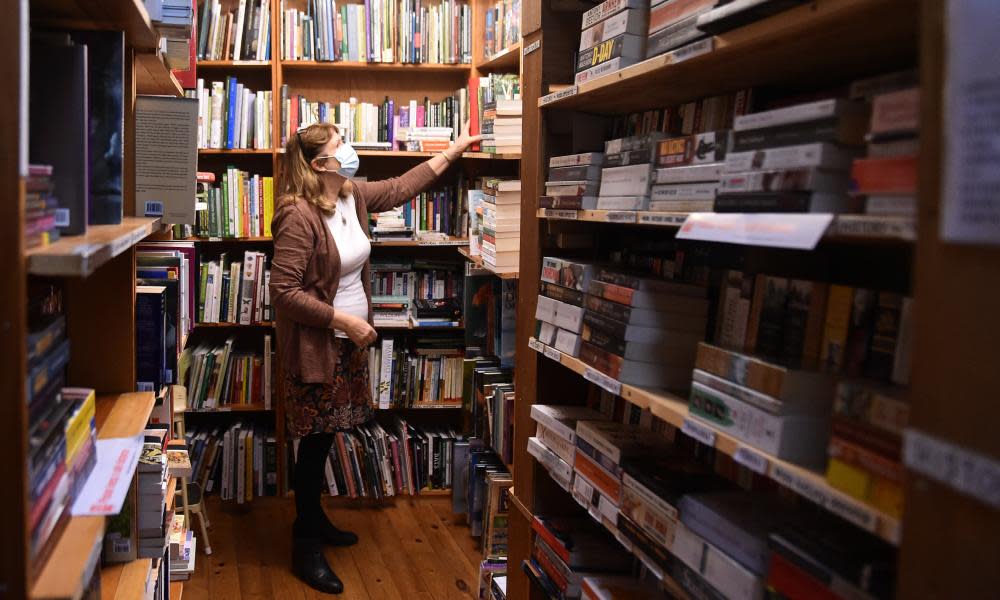The Guardian view on word power: secure against loss

As the UK moves into the first winter of this global pandemic, the public is beginning to see certain patterns take shape. We have been through the hoarding stage, the bathos of piled-up toilet paper and the metaphor of disappearing flour. We have baked and decorated (if we had the time and money). We have watched a lot of television. And we are reading.
Sales of physical books dropped in lockdown, when all shops were shut; the minute lockdown was eased, however, they did not just recover but, according to Nielsen Bookscan, increased 15% year on year. Online sales of print books rose by 45%, ebooks by 30% and audio by 28%; that 45% remained steady even after the first lockdown ended. Borrowing of ebooks from libraries went up by a massive 146%, while registration for library cards increased by up to 700%.
The rise in audiobook sales is especially striking. Once, perhaps, the preserve of the RNIB, they have been growing steadily more mainstream. A survey this week noted double-digit growth for the sixth year running – despite the sudden cancellation, for many, of the daily commute. People liked audiobooks, the survey found, because they could multitask.
Audiobooks enable distraction, therefore; but it also could be argued that they contain distraction – a mind absorbed in a story, or non-fiction argument, is less likely to skitter into fragmented worries. They are about making contact with a skilled human voice – a voice, moreover, that in its very use imposes an interpretation.
“Reading is escape, and the opposite of escape,” as Nora Ephron put it in I Feel Bad About My Neck. “It’s a way to make contact with reality after a day of making things up, and it’s a way of making contact with someone else’s imagination after a day that’s all too real.”
A voice telling a story harks back to oral traditions, and the discipline – and joy – of listening. It is welcoming to those for whom reading is a challenge (because of dyslexia, for instance, or a patchy education). It is a human connection in a time of widespread loneliness, a bond; there is a reason why reading aloud to children is so strongly recommended, and it isn’t just literacy. Come, it says, gather round by the fire – here, inside a story, is a safe space, at least for a little while, whatever darkness howls without.
No wonder, then, that there is an increasing move to designate books as essential. Belgium, Germany and Austria have kept bookshops open, while in France, writers have clubbed together to pay fines levied on shops that have refused to close. In Chicago, a pre-pandemic experiment in cancelling all library fines paid unexpectedly high dividends in returned books and increased borrowing. This underlines, among other things, how the need is there even or especially when – as increasingly will be the case – the finances aren’t.


